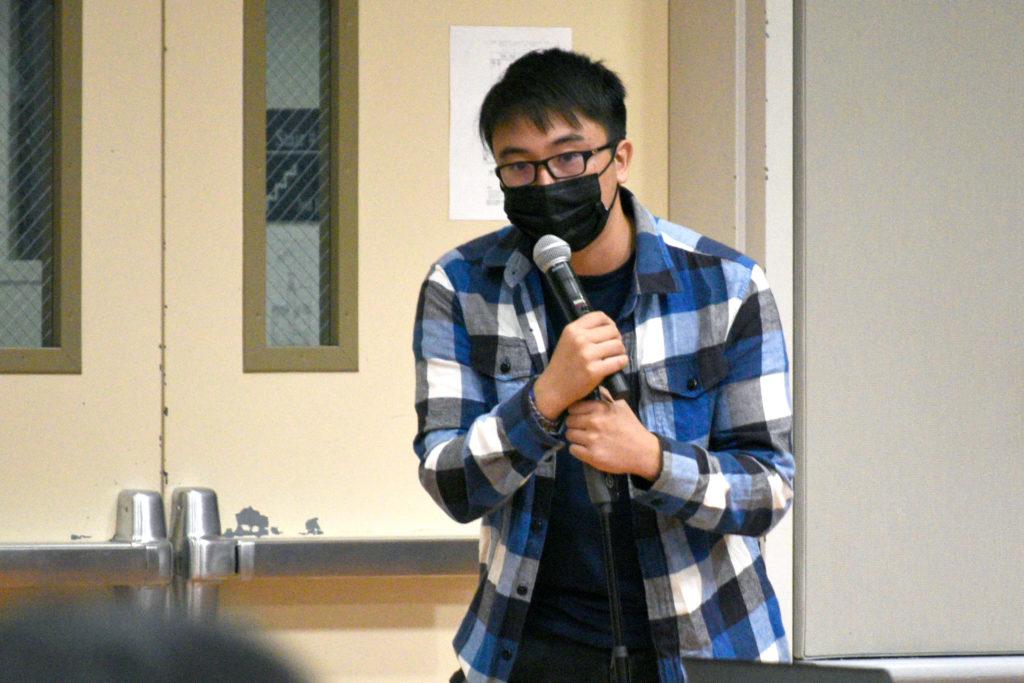Students said a centralized location for used and online textbooks could alleviate yearly expenses as the Student Association prepares to kickstart its online textbook exchange program.
The SA Senate voted last week to establish a textbook exchange program for students to buy or trade through Google Sheets, where users can view textbooks available for rent or purchase from other students. More than 10 students said the initiative could help them locate less expensive alternatives to textbooks instead of spending hundreds of dollars on new class materials each semester.
SA Sen. Gabriel Young, CCAS-U, who sponsored the Hippo Community Library resolution said the textbook exchange portal would help students connect with each other and either lend or sell their books after struggling to pay expensive textbook prices from markets like the GW Campus Store or Amazon. He said he hopes the Hippo Library could be available for students to use by the upcoming spring semester.
“There are some people who do not even have a job, or they’re using their work-study funds to just pay off for school,” Young said. “This will allow students to save money and put money back into students’ pockets.”
Young said members of the SA’s undergraduate education policy committee will post a Google Form link next month to the SA’s social media for students to submit their textbooks, post their selling points and share their contact information. SA members will then transfer the form’s data to a Google spreadsheet that all students can view and use to contact the person selling the book they hope to buy, he said.
Young said he drafted the resolution to address a few complaints he heard about textbook affordability in conversations with students during his office hours since last year. He said the financial aid office’s website states that students – especially those in STEM programs like biology or neuroscience – may spend upwards of $1,400 per semester on textbooks and school supplies, which may not be affordable for the average student.
He said each box in the spreadsheet will state the associated class for each textbook, links to online PDFs and contact information for students willing to give away these textbooks. He said centralizing textbook resources will help students save time typically spent on finding required reading for class.
“I want this to be a resource that is continually updated so that students in the future will be able to use it, and it will be a good system for future academic people to use as well,” he said.
More than 10 students said the spreadsheet’s features, like information about used textbooks and free PDFs, could help them avoid costly textbook prices as they work to seek out more affordable ways to obtain class materials.
Sophomore Natalia Perez, an international affairs major, said she has searched through Reddit for free textbook links and asked her friends to borrow materials to avoid paying for costly textbook prices. She said even with financial assistance from her parents, paying high prices for textbooks that she’ll only use for six months is hard to justify.
She said the SA’s online community library will ease the process of finding free online textbook alternatives and pinpointing affordable options.
“Sometimes it’s hard to get them or it takes so much time to ship or they’re too expensive,” Perez said. “So trying to find cheaper alternatives is hard.”
Sophomore Sara Ragsdale, a philosophy major, said paying for textbooks forces her to make “difficult” budgeting decisions, like whether she can buy groceries. She said in addition to the community library, professors could assign more affordable materials and fewer textbooks to alleviate some of the costs, citing classes that require students to purchase almost 10 books in total.
‘“A lot of it is sort of the professors – I have two classes that require nine textbooks apiece, and that is absurd,” Ragsdale said.
Freshman Keely Busby, who is majoring in American studies, said they spent nearly $200 on textbooks for a single class this semester. They said they would like to see professors make required textbooks, specifically workbooks, more readily available online, through systems like the Hippo Community Library.
“If there’s a workbook, they can make that available to us through the campus website or University Student Center or the library,” Busby said.
Senior Lauren Lafond, a political science major, said she struggled to buy textbooks in the past because professors prefer newer editions, which are often more expensive than previous versions. She said purchasing used textbooks, which are often cheaper than new ones, can sometimes be a challenge if a professor requires an edition released more recently.
She said officials offering more textbooks for rent through Gelman Library would make them more accessible for students. She said the Hippo Community Library will not impact her much since she is a senior and it won’t go into effect until the spring, but it’s a great idea to alleviate textbook costs among students.
“It’s just something that you have to plan ahead of, and it’s challenging when professors don’t post syllabuses or things like that until right before school starts,” Lafond said. “So it’s definitely harder to get textbooks in advance and put aside money for them.”








